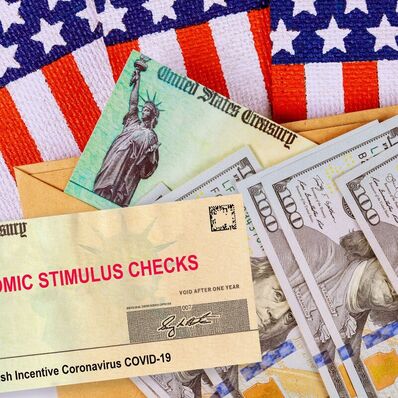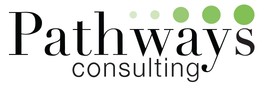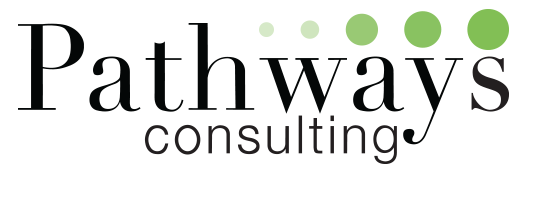 Now that the stimulus checks have all been sent out, many Americans are hesitant on using the funds. They aren't sure if the rumors they're hearing about the strings attached to them are accurate or not. Now that we have all received our stimulus checks, we are now facing a slew of rumors and myths about the money we have received. This money was welcomed with open arms, helping pay bills, and keeping food on the table for many. Thanks to Social Media and other media outlets, and just the sheer amount of information (correct or not) that's available, rumors and misinformation have been spread about the realities of our stimulus checks. We are here to set the truth straight, calm your worries, and get rid of these myths once and for all. According to AARP, once the CARES act went into action, the IRS sent out over 140 million stimulus checks. As this relief arrived and people started spending it, some hesitation did arise. The question if we will need to pay back the IRS and if these funds will be counted as part of our income in our 2020 taxes are at the forefront of this hesitation. With income and employment being so unstable, these are very understandable questions. Yes, this money is a blessing now. But, will it turn into a curse later? First and foremost it is very important to know that you will not be paying back your stimulus checks. The IRS has even come out and said on multiple occasions that this will not be something that you will have to pay back. The stimulus check, according to CNBC, did get the nickname "recovery rebate" which is one of the main reasons why this concern began. Why won't you have to repay the IRS? That is due to the nature of tax credit the IRS is considering our stimulus checks. There is a certain type of tax credit, says Wealth Hacker Report Jeff Rose, called an Earned Income Tax Credit. These credits are completely refundable. Even if you don't owe any taxes at the end of the year, if you have any earned income tax credits, you will still be receiving a tax refund. This is how the IRS is treating your stimulus checks. It is something you're owed, not something you will have to repay. This is how those who don't file for taxes, like those who receive social security, disability, and railroad retirement benefits were eligible for a stimulus check. As long as you have a social security number and you meet the income requirements to receive a single or joint filing stimulus check, you will receive a stimulus check, with no strings attached. Since the IRS is treating your stimulus check like earned income tax credit, it also will not be counted as part of your income when you file your 2020 tax return. You've received this money and it is taken care of, nothing else is required for you to do about it. Ironically, there is an opportunity for you to receive more money if your stimulus check wasn't calculated correctly by the IRS. These mistakes will most likely be caught when filing your 2020 tax return, or if you didn't claim a dependent child on your tax forms, or alert the IRS to a dependent child. You won't, on the other hand, be receiving any extra stimulus money when you file your 2020 tax return if you received the proper amount. The only way that will happen is if there is another stimulus check released, which for now is just a myth and rumor. Also, know that the stimulus check will not reduce your refund that you're owed on your 2020 taxes. You will receive every penny that you're owed, and your stimulus check will not be deducted from it or even affect it. The stimulus check will also not lower the amount you owe in taxes, either. That can be confusing since other tax credits can reduce how much you owe. But, the stimulus check will not be one of them. At the end of the day, your stimulus check will not be affecting your 2020 taxes at all. There have been some situations, according to CNBC, that some individuals have been overpaid and given more stimulus money than they should have received. If this happens, you will not have to pay that back either. This is incredibly rare though, and more often than not, is actually a scam. As we have mentioned in recent blogs, scams regarding the stimulus checks have become rampant since they were first released. If you receive a very official-looking check in the mail for more than your stimulus amount, and it is requested of you to pay back the difference in cash, certified check, money order, or in gift cards, that is without a doubt a scam. The IRS will not contact you via phone, social media, email, or texting. If you receive any messages about your stimulus checks through these platforms make sure to report them and then delete them right away. We hope this insight helps you better understand your stimulus check, and what you are expected to do with them now that you've received them. If you have any further questions about them, or about the 2019 tax date that just passed us on July 15th, please don't hesitate to reach out. We will be very busy over the next couple of weeks, as we have been leading up to the 15th, but we will try and get back to you as quickly as possible. Don't forget! If you're looking for the best tax accountant in Summerville, the best tax services in Summerville, the best Quickbooks services in Summerville, and the best payroll services in Summerville, we are still here for you. Tax season may be over for some and just starting for others, and we will be here for you no matter what!
0 Comments
Leave a Reply. |
AuthorThe Pathways Team Archives
September 2020
Categories
All
|
|
(843) 261-9293
105 South Cedar St. Suite E Summerville, SC 29483 9:00am- 5:00pm, Monday- Friday |

 RSS Feed
RSS Feed
